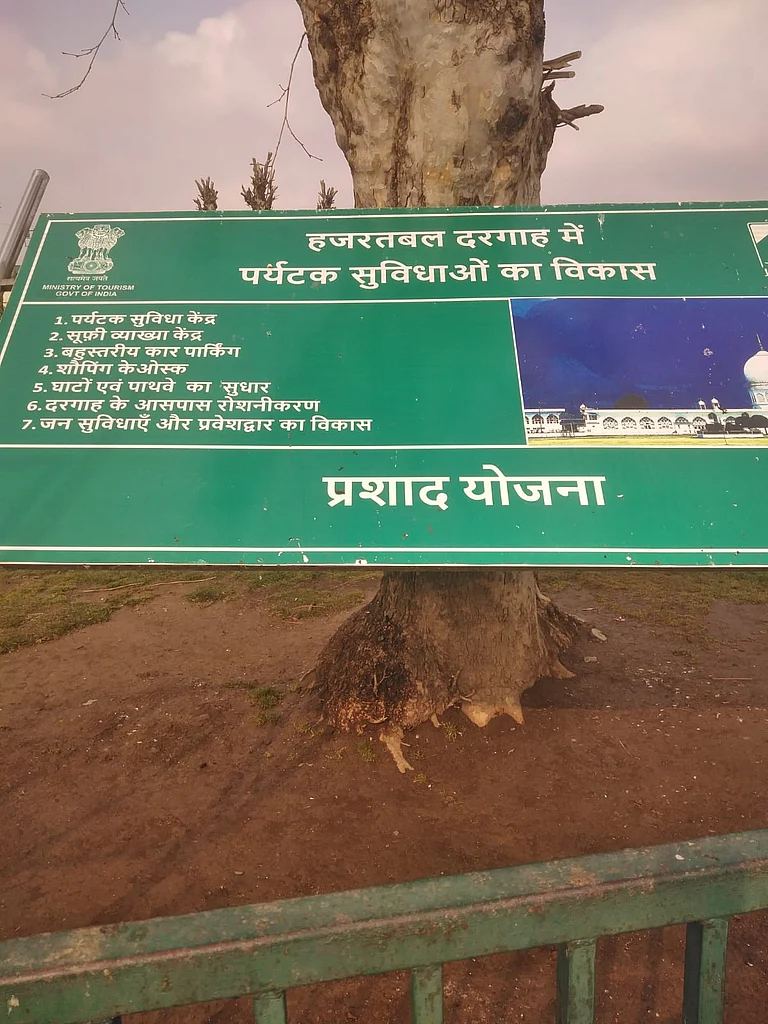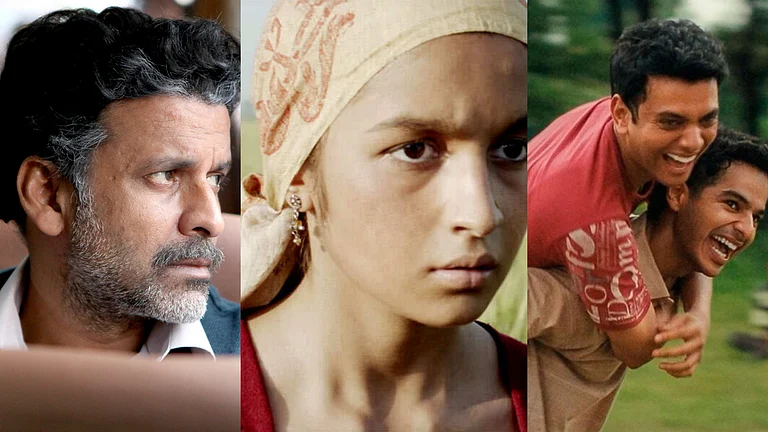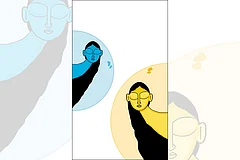Therefore one voice is suddenly dispersed
Into many voices, since it divides itself
Into separate years, stamping onto them
The form of the word and its distinctive sound
—Ronald Melville, translator
Many years ago, an old writer asked me, “What language do you think in?” I said, “All the languages I know—Hindi, English and my mother tongue, Maithili. I keep switching. There is constant dismantling and rebuilding. But primarily English and Hindi.” He smiled at me in a reassuring manner, sensing the turbulence I felt within answering his question. Along the way, many questions riddled my mind, but this one in particular kept appearing and reappearing. I chose to answer it differently each time, thinking about the relationship of language to life. One such moment was when I had to translate my father’s work from Hindi to English. He wrote the biography of pop queen and singing legend Usha Uthup in Hindi titled Ullas Ki Naav (Boat of Joy). Translating the biography has been a journey of rediscovery—I rediscovered the power, movement and reimagination of language, and it all started by looking back at my relation with languages since I was a child.
I grew up in a household that was walled with books. Multiple voices, languages, narratives and characters would keep me in a world that could have been across time and space. Alongside reading the English classics, I was plunged into a landscape where generations of Hindi writers had created a whole different universe that emerged from the heart of the motherland. And then there was the holdall of translated works! Especially the Russian masterpieces that were not only available to me in English, but also in Hindi during the 1990s. My grandmother, a Hindi professor, was a voracious reader and my father would often call her ‘his library of languages’.
One of my best memories with her remains our trip to the Hindi bookstores and book fairs where we would buy translated works in Hindi from an array of national and international languages. The art of translation had begun to create a sense of wonderment and a source of quandary too. I would often think about the people who had put in so much effort to represent someone else’s work, to carry their stories, and around the world that is also restricted by languages. What is the takeaway here for a translator? A few years later, I came across a Hindi idiom that I overheard during a conversation that was going on between my father and my grandmother—Sona mein sugandh (fragrance in gold). Suddenly, these three words answered my question. That’s what a translator gets. That’s what a translator does. But what does fragrance do to glistening gold? What happens to a language when it becomes another? What happens to a story when it is told in a different language? How is the soul kept alive in a different body? How does a translator’s identity and voice impact the writer’s original work? As a journalist and a writer, I would often get overwhelmed by expressions and works of writing that would answer these questions for me in one way or the other. There were moments of catharsis too.
Then came the actual test. The biography of Uthup that my father, Vikas Kumar Jha, wrote was published in Hindi in 2019. He was a huge fan of the pop singer for decades and her music remained a pure source of joy for him. Many were amused as they assumed, and rightly so, that if Uthup’s biography were ever to be written, it would be in English given her background, despite the fact that the legendary singer sang in 17 Indian languages and eight foreign languages. Another fascinating aspect was that a man was writing a woman’s story. There were other differentiators as well, apart from the language. Voice, culture, community, generation and identity.
During the research period, I saw a male writer internalising this feminine enigma, her life, her desires, her dreams, her struggles, her existence and axis as a woman, a woman with a manly voice, a woman who never gave up, a woman who embodied happiness no matter what, a woman who created her own path in a male-dominated world, a woman who was so secure in her being. A woman who he described to his young daughter as a rock star. Most importantly, I cherished a male voice so comfortable and so proud of a female voice and its infinite power. He delved into an extraordinary journey of an ordinary woman. My father would often narrate the Hindi chapters from the biography to me, saying he wants a female ear to his words. And also a young ear as Uthup’s music and life were always bursting with youthful exuberance and how she has been a youth icon across generations and continues to do so. He captured how Uthup was always aware of how a perplexed mind can survive with the courage of art. How since childhood, Uthup felt an invisible world within her and what the invisible world wants. How the suffering of the world sleeps restfully in Usha’s songs and how she believes that she is reliving her past life. I began to see a bit of myself in her.
While translating this work, I went on a separate journey that entwined the writer and the translator in me. I can’t keep them separate anymore.
Like an informal accomplice to him, I was going deeper into her journey. I hadn’t met the singing sensation till then, and the more I knew about her through the chapters around her childhood, her family, her music journey, her days of youth, her madness for music, the more I wanted to experience her presence.
The day came when I met her. A mortal woman carrying a goddess within. We formed our own friendship. I asked myself, “Isn’t she everything that every woman wants to be?” Free, secure, invincible. The Hindi expressions from the biography were coming to life for me. I would try and think of her as a tree that lived through time and space, a sea with a calm surface but massive turbulence within, or a wild wind that keeps travelling without a destination. A sub-conscious translation had begun unknowingly.
When the Hindi biography was out, the probability of an English translation became a part of the conversation around the book. My father wanted me to do it, but never expressed the desire as he wanted my first book to be my novel that I was working on at a snail’s pace. I was aware of his dilemma, but I chose not to discuss it. He told me that the commissioning editor wanted this book to be translated with love as it was written with love. Keeping the original essence of the Hindi biography intact was the most important thing. One afternoon, we were sitting together and I asked him, “Do you want me to do it?” He looked at me and asked, “Do you want to do this?” I replied yes. Like a reflex. Like it was all bound to happen. I wanted to take that journey. From one language to another. From one voice to the other, remaining true to the narrative, the immersive storytelling, trying my best to add my fragrance to his gold.
“Twilight was merging into the night. For life, for spring, in her blazing voice, with all turbulences of the soul, in conversation with the sea, she was sprinkling pollen on the coast of hope. As if she were asking: “Do dreams come true? Does sadness have a fragrance?” Lost in the tones, the tiny jasmine flowers in Usha’s long braid were flaring in the nightclub’s dim, blue light. Such fragrance to sound, like tuberose (rajnigandha) blooming in kohl garden beds.”
There are many parts of the biography that stir my core with the beauty of words, but the lines above from the English translation, The Queen of Indian Pop, released in 2022 remain embedded deep in my soul. While translating this work, I went on a separate journey that entwined the writer and the translator in me. I can’t keep them separate anymore. Layering emotions through words, keeping two voices separate, yet so together, rediscovering the mysterious terrains of languages. Rediscovering my own feminine energy, the celebration of my inner self, as I sail through the female pop icon’s journey as a girl, as a woman, as Shakti herself.
After many conversations around the book over the last two years, after numerous questions and opinions around this larger-than-life woman, the motive, the drive, the willingness, the intent, what comes to mind is the idea of a litmus test. A pure chemical experiment. How the purple colour changes to red and blue, depending upon the nature of the object. The original work symbolises the richness and grandeur of red—a feminine energy depicting the sun. An energy so powerful that it represents life, fire and strength. As I finished the translation, it appeared a little blue to me. Like a fragrant tint of moonlight gleaming alongside the fiery red edges of the sunrays. The fire remained lit in the presence of gentle waters.
I found the fragrance I was looking for in the gold that I aspired to create one day. Translating my father’s writing brought me closer to my own writing. I never stepped in his shoes but walked alongside. He never held my hand and guided me through it. The Queen of Indian Pop still remains an invisible world to me, a special one where I am guided by the fragrance that I discovered in the light of the golden sun. A redolent light that refuses to leave me.
(Views expressed are personal)
MORE FROM THIS ISSUE
Srishti Jha is a writer, editor, journalist and translator





























